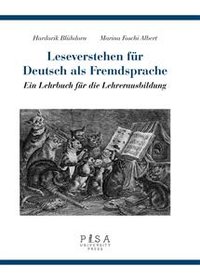Il volume, concepito per docenti e studenti universitari di germanistica e tedesco come lingua straniera, descrive una scelta di strutture lessicali e grammaticali del tedesco di particolare rilievo per la lettura e comprensione del testo. I vari capitoli presentano una serie di mezzi linguistici e ne illustrano la funzione testuale, introducendo tecniche pratiche di lettura utili al loro riconoscimento. Sulla scorta di testi campione ed esercizi, viene in tal modo a esporsi un modello didattico per la formazione universitaria degli insegnanti di tedesco. Das Buch beschreibt ausgewählte lexikalische und grammatische Strukturen des Deutschen mit besonderer Bedeutung für das Leseverstehen. Es wendet sich an Dozenten und Studierende im Germanistikstudium an Hochschulen. Die einzelnen Kapitel stellen Gruppen von Sprachmitteln vor, illustrieren deren Textfunktionen und zeigen, wie sie mit praktischen Lektüretechniken erschlossen werden. Anhand von Beispieltexten und Übungen wird ihre Didaktisierung für die universitäre Lehrerausbildung im Fach Deutsch als Fremdsprache vorgeführt.

